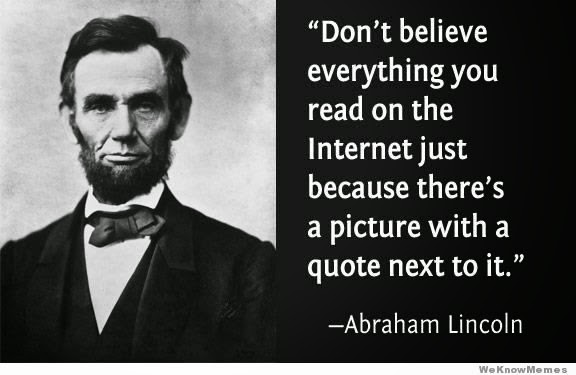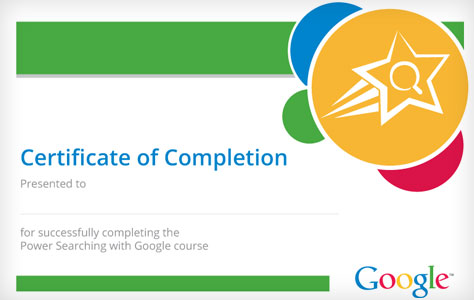As kids advance through their school career the ability to research information efficiently and accurately becomes more and more important, especially for those school projects that can be worth so many marks.
The advent of the Internet has certainly changed the way students conduct educational research. In some ways Google, Wikipedia and the many other web based resources available to them have made it easier for them to conduct great research than it was back in the days when encyclopedias, text books, newspapers and magazines were the go-to sources. On the flip side, Internet research comes along with a new set of complications we never had to deal with.
Even if they will be doing things a little differently than you can remember doing when you were at school, some of the basic principles of good research remain the same, and you’ll be doing your child a big favour if you take the time to help them learn and master them.
Here’s a look at some of the most important research skills your students need, and how to help them master them.
1. Checking Their Sources
The Basic Skill: The ability to evaluate individual pieces of information for their accuracy, credibility, validity, usefulness and relevance to the subject matter at hand.
The Challenge Kids Face: Most kids do know that they really should not believe everything they read online. However, according to various research studies they don’t always take the time to fully evaluate their sources when gathering information for educational purposes.
This can be further complicated because if you ask almost any kid over about the age of ten how Internet savvy they are they are likely to claim something between pretty good and genius level, and trying to tell them – as an ‘old person’ – how to use the Net is likely to be met with snickers and some measure of disbelief.
A Simple Solution: Sit down with your child to brainstorm a list of benchmarks that they can use to evaluate each piece of information they consider making use of in their research.
How old is the information (is it up to date)? Is the information credible (does it come from a known expert?) and in terms of the website they are taking this information from, is it secure (does the site ask for too much personal information or prompt virus warnings?). Challenge your child to make use of this checklist every time they are looking for information on any topic and their ability to properly identify the good from the bad should increase significantly without them having to feel ‘schooled’ about their skills.
2. Learning to Ask Good Questions
The Basic Skill: Learn to refine search queries to obtain better research results
The Challenge Kids Face: We all face this challenge. When you Google something, how far down the results page do you go to get your information If you are like some 90% of Internet users no further than the first page. After all, if Google says the information is good it must be right?
Unfortunately, that is NOT the case, especially when it comes to certain ‘popular’ searches. A few years ago, Google came in for major criticism when it was discovered that the first six results returned for a search requesting ‘brain cancer’ led to rather dubious websites filled with ‘lifestyle tips’ and/or ‘home remedies’.
It wasn’t until the seventh result (well down the page) that a credible medical authority – in this case Memorial Sloan Kettering Cancer Center in NYC, a world leader in research into brain cancer – was offered up.
This can open up a wider discussion about the validity of search engine results, the effects of bad SEO (search engine optimization) and paid ads, but that’s for another time. The internet can offer the right, valid information, but only if the searcher is a little more selective with their queries.
The Simple Solution: This is actually an educational opportunity for both you and your child, as becoming a better ‘searcher’ can be helpful in lots of different ways. One way to do this is take an online course that is offered by Google themselves – the Power Searching with Google course – that can be taken at any time at your own – and your child’s – own pace.
The course is comprehensive but not too challenging and it provides a great foundation for better search habits. And a certificate. What kid doesn’t like to get a certificate stating they are an expert in something? That alone may be motive enough to get most kids to try it out.
3. Learning to Love the Library
The Basic Skill: Making use of the printed resources at the local library to improve the accuracy and scope of research.
The Challenge Kids Face: Kids just don’t do this, unless forced to. Why bother, it’s much easier to ‘Google it’ is usually the average child’s mindset.
The Simple Solution: OK, this may be where you have to take on that ‘dinosaur’ role and remind your child that once upon a time there was no Google, no Wikipedia, no Internet in fact and when kids needed to research something they went to library and read books. Sure, kids have libraries at school, but they too are increasing Internet dependent and the number of children who have actual ‘library skills’ is dwindling significantly.
After you have delivered all this information, it’s time for a trip to a real library to help your child learn how to research offline. Not only will this help them turn in a better research paper or homework assignment this time around but also set them up for a brighter future, as offline research skills are still very important in the university setting.
4. Being Patient
The Basic Skill: Having the patience to go through a number of different sources and research methods to really get the information and perspective needed to turn a complete, accurate and informative research project.
The Challenge Kids Face: Today’s kids are used to information on demand. When something takes a little longer to find, or involves doing several different things (checking more than just Wikipedia, going to library as well as searching on the Internet etc.) they are likely to get a bit frustrated and ‘throw in the towel’ far too easily.
The Simple Solution: Challenge your child to come up with a well-researched, credible answer for a fun question that is not ‘Google-able’ in return for a small reward. Something like ‘Who is the better singer, Ed Sheeran or Sam Smith?’ or ‘Who was the best actor to ever play James Bond?’
Encourage them to use a number of different sources in their answer (record sales, box office receipts, reviews etc.) If their answer is convincing enough they get their prize. Then suggest they approach the current frustrating research project in a similar way, with the prize being an A (and a really proud parent.)












